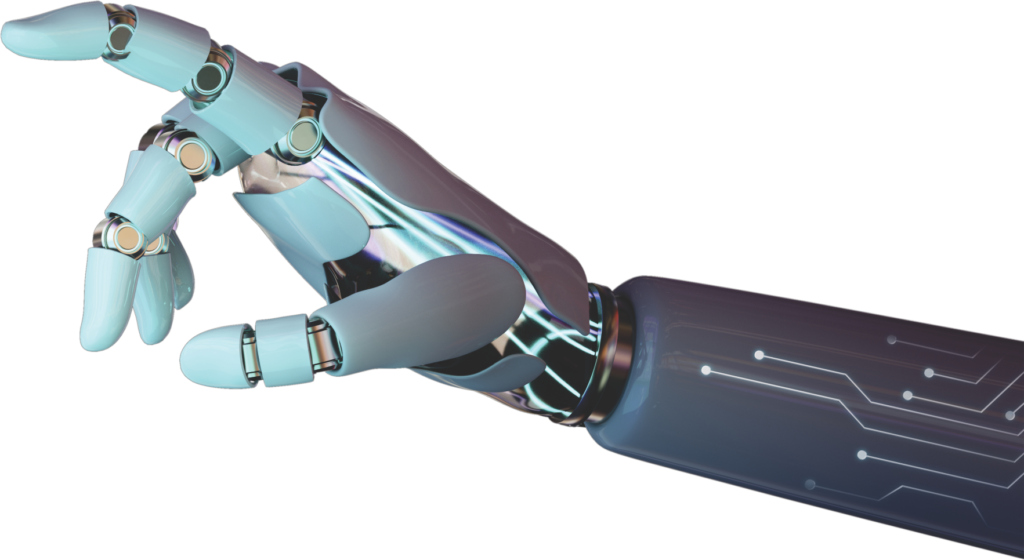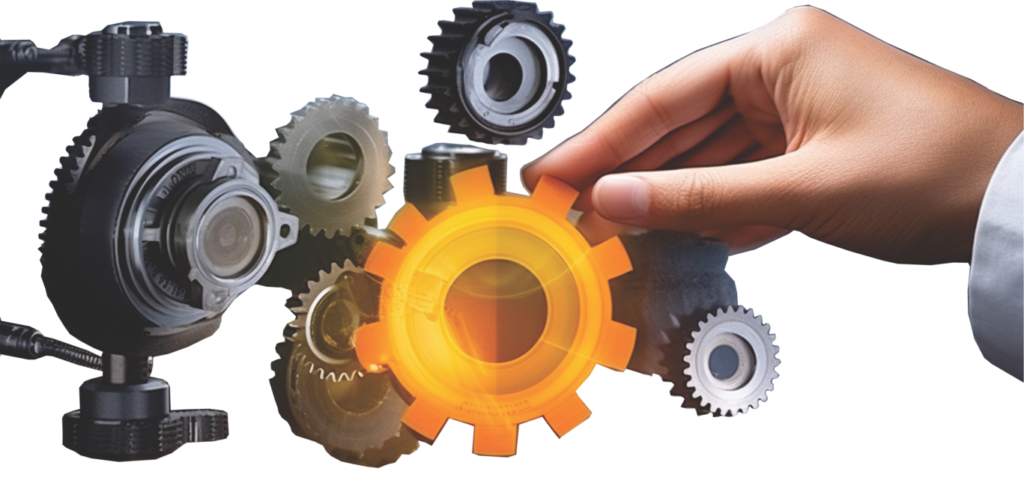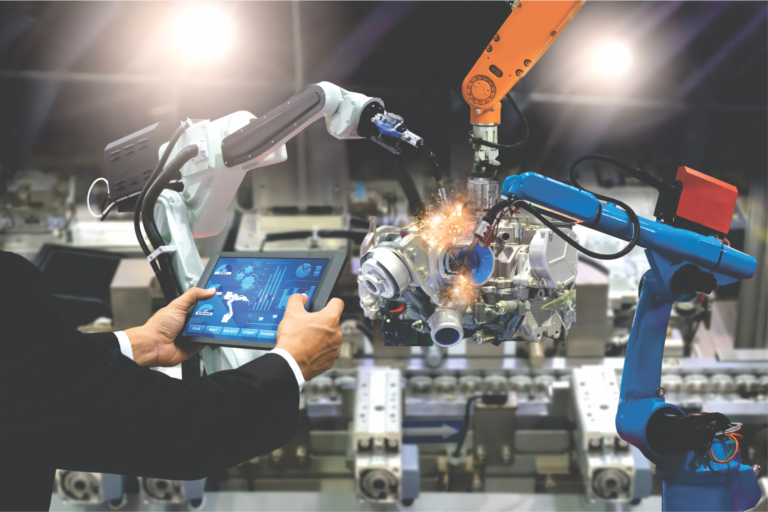Unveiling Transformative Ideas.
The past decade has witnessed a remarkable surge in groundbreaking engineering achievements. It has not only redefined our perception of what can be accomplished but has also ushered us into a future where the extraordinary has become the standard. In a moment of contemplation, we find ourselves marvelling at the remarkable engineering breakthroughs that have defined the past decade. These achievements serve as a powerful reminder that achieving success is not simply a destination, but a path paved with boldness, perseverance, and an unwavering conviction that even the most formidable obstacles can be transformed into remarkable possibilities.
Revolutionising Industry Through Smart Manufacturing.
In a remarkable turn of events, the past decade has been marked by a groundbreaking phenomenon known as smart manufacturing. The advent of groundbreaking technologies such as Artificial Intelligence (AI), Internet of Things (IoT), and advanced robotics has ushered in a complete transformation. This paradigm shift has brought about not just enhanced operational efficiency but also heralded a groundbreaking era of interconnected and intelligent production. In an in-depth exploration of the key facts and figures surrounding the ongoing revolution, it becomes increasingly clear that smart manufacturing is more than just a trend.
Smart manufacturing has emerged because of the intelligent integration of IoT devices and AI algorithms. Based on a study conducted by McKinsey & Company, this groundbreaking technology is projected to create an astounding $3.7 trillion in income by 2025. The combination of Artificial Intelligence (AI) and the Internet of Things (IoT) has become a significant development, since AI efficiently analyses and reacts to real-time data gathered by IoT sensors. This advanced technology enhances efficiency and minimises downtime, resulting in a substantial improvement in total industrial performance. The industrial business has also undergone a significant transformation with the advent of collaborative robots, often known as cobots, which have revolutionised the interaction between humans and machines. The International Federation of Robotics (IFR) has reported a significant 12% increase in sales of industrial robots by the year 2020. The concept of smart factories powered by cyber-physical systems is garnering global attention and momentum in today’s fast-changing technology world. This novel method of production is transforming the industrial domain, leading to enhanced efficiency, productivity, and interconnectedness. Deloitte reports that 86% of industrial firms have initiated smart factory projects.

Over the past decade, smart manufacturing has seen a major transition, as shown by the numbers and statistics. Smart technology has optimised production processes and set the stage for a more agile, sustainable, and connected manufacturing future. As smart manufacturing evolves, the industry will reach new heights of efficiency and creativity in the coming decade.
Powering The Future: Breakthrough Developments In Power Sector.
In a time when demand for sustainable and reliable energy sources is high, the power sector has advanced dramatically in the past decade. Revolutionary power generation, transmission and distribution innovations are changing the global energy environment. Let’s shed light on the milestones and technologies that are altering the future of electricity and creating a more sustainable and efficient energy ecology.
In a remarkable development, renewable energy sources, including solar and wind, have emerged as pivotal forces in the energy landscape. These sources have gained widespread acceptance and are now responsible for an impressive 26% share of global electricity production as of 2021 (as reported by a report by the International Energy Agency). In another groundbreaking development, the integration of energy storage solutions has emerged as a pivotal breakthrough in the field of power distribution. In the realm of energy preservation and grid reliability, emerging technologies like flow batteries, pumped hydro storage, and batteries have emerged as crucial components. These innovative solutions play a pivotal role in tackling the challenges posed by surplus energy and ensuring a stable electrical grid. According to BloombergNEF, the global energy storage market is expected to reach an impressive value of $546 billion by the year 2035.

Digital technologies have given birth to a smart grid era. Technologies such as data analytics, sensors, and communication networks, help to optimise power distribution, decrease outages, and improve grid reliability. The Edison Electric Institute estimates that $500 billion will be invested in grid digitalization by 2030. The Indian government also created the National Smart Grid Mission (NSGM)2 in 2015 to oversee and manage the execution of smart grid-related policies and initiatives.
Power sector progress has accelerated during the past decade in an era of urgent need for clean and reliable energy. New power generation, transmission, and distribution technologies are transforming global energy.
A Decade Of Pioneering Developments In Aerospace.
Over the last ten years, there has been a significant shift in the aerospace industry, with new advancements and discoveries altering the core principles of space exploration. Leading these revolutionary changes is the development of reusable rocket technology, which is being promoted by industry innovators like SpaceX. This revolutionary concept isn’t merely altering our approach to space travel; it’s rewriting the rulebook. By substantially cutting launch costs, reusable rocket technology has opened the door to a new epoch of frequent and accessible space exploration, propelling us into uncharted cosmic territories.
The aerospace sector is embracing sustainability, with electric propulsion systems and eco-friendly aviation solutions taking center stage. Materials like carbon composites are now instrumental in crafting aircraft that are both lightweight and durable, enhancing fuel efficiency and championing environmental sustainability.

When one looks back over the last ten years, these advancements in aeronautical technology represent not only human creativity but also an unwavering quest to push the limits of what is possible in the enormous realm of the sky. As these developments continue to influence aeronautical exploration, the upcoming ten years look to be even more thrilling.
Aeronautical advancements have undoubtedly enhanced our capacity for air travel while also paving the path for an even more thrilling and dynamic future. These discoveries have, in fact, stretched for the stars and surpassed the sky. From the collaborative efforts of international space exploration missions to the integration of artificial intelligence in flight operations, the aerospace industry has expanded its horizons. Standing at the threshold of a new decade, these achievements propel us into a future where the possibilities of aerospace know no bounds, promising further exploration, innovation, and a continued journey towards the infinite.
Unveiling The Next Level Of Accuracy And Efficiency In Machine Tools.
In the dynamic realm of manufacturing, precision engineering in machine tools is catalyzing a transformative revolution, pushing the boundaries of accuracy and efficiency to unprecedented heights. The convergence of advanced control systems, state-of-the-art materials, and integrated metrology has revolutionised the industry. In this groundbreaking era, precision reaches unprecedented heights that were once deemed unattainable.
In the span of the last ten years, the machine tool industry has experienced a transformative change, whose groundbreaking innovations have redefined its very foundation. The rise of advanced CNC (Computer Numerical Control) systems has revolutionised the world of machine tools, presenting a multitude of opportunities for intricate designs and complex components that were once deemed insurmountable obstacles. This not only optimizes production processes but also introduces the power of predictive maintenance, substantially reducing downtime and operational costs.
Precision engineering in machine tools represents a paradigm shift, marking a departure from conventional manufacturing approaches. Through the adept utilization of advanced control systems, state-of-the-art materials, and adaptive machining strategies, precision engineering ensures tasks are executed with unparalleled accuracy, minimizing deviations. This transformative approach not only caters to the escalating demand for intricately designed components but also streamlines operations, significantly enhancing overall productivity and cost-effectiveness. The current landscape sees machine tools boasting enhanced connectivity, sophisticated data analytics, and seamless automation, fostering effortless communication between machines and facilitating more agile and responsive production processes. This integration not only bolsters efficiency but also lays the groundwork for predictive maintenance, minimizing downtime and optimizing the overall effectiveness of equipment.

Precision engineering in machine tools is on the brink of redefining the manufacturing landscape. It transcends mere adherence to industry standards; instead, it sets the stage for a future where precision becomes the bedrock of machining and tooling. This forward-looking approach propels advancements that reshape the way high-quality components are produced, marking a future characterized by unparalleled accuracy and efficiency in manufacturing.
The last ten years have been a journey of transformation, demonstrating unwavering conviction & determination. At this critical juncture, at the beginning of a new era, several ground-breaking ideas surface that are opening the door to a future in which sustainability, and innovation coexist. The accomplishments of the last ten years have paved the way for a dynamic future as we set out on a voyage of discovery, invention, and the boundless potential of human creativity.






